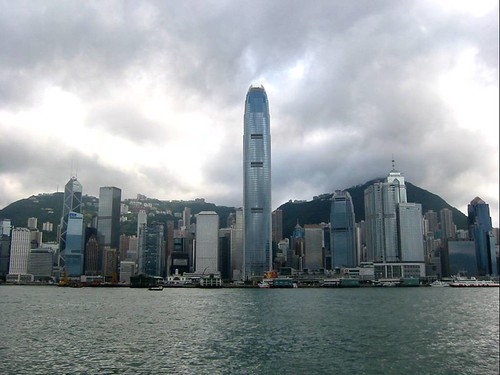HK’s millionaires up by 164,000, but so is number earning under HK$3,500 a month
May Chan
SCMP Mar 09, 2011

The property boom and market rebound added 164,000 new millionaires to Hong Kong last year – the biggest increase since Citibank started to analyse residents’ wealth in this way eight years ago.
In the same year, Hong Kong reported 1.26 million people making less than HK$3,500 a month.
Together, the numbers paint a stark picture of a big wealth disparity in the city of seven million.
Citibank yesterday announced the latest findings of its annual survey on the number of Hongkongers with liquid asset of more than HK$1 million.
The city had 558,000 millionaires by the end of last month, up 42 per cent on 2009. This is a record high, in terms of absolute number and the growth rate since Citibank started the survey.
These people now make up 10.8 per cent of the city’s adult population, and the millionaires are getting younger. The average age of the group went down by five years to 46, and the average age of the 164,000 new additions to the list was only 40.
The surge in personal wealth can be attributed to the city’s booming property market. Of the new millionaires, 29 per cent said they made their first million dollars through property transactions – compared with only 8 per cent in 2009.
Most of the newly rich, about 47 per cent, made their fortune last year from investments in the capital market – such as stocks, funds, currency trade and yuan-related investment products. A year ago, the figure was 55 per cent.
Simon Chow wing-charn, Citibank Global Consumer Group’s deputy country business manager, expected the number of millionaires would grow in the next few years because of a strong economy.
He noted the millionaires generally were positive about this year’s property market, with 20 per cent saying they planned to buy property this year, up 8 per cent from 2009.
“The new millionaires tend to be younger, and they are still in the workforce,” Chow said. Twentysomethings should be optimistic about the future – 4 per cent of the new millionaires were aged 21 to 29, he said.
The survey also showed a positive relationship between the level of wealth and the level of happiness. Respondents with less than HK$100,000 of liquidity averaged 5.75 on a scale from 0 to 10 in terms of happiness, while those with HK$5 million or above scored 7.83.
The survey was conducted by the Social Sciences Research Centre of the University of Hong Kong, with 4,626 adults interviewed by phone from December last year to February.
The number of millionaires in Hong Kong, according to survey data, had increased from 260,000 to 558,000 during the period of 2003 to 2010, with a sharp decline in 2008 from 414,000 to 348,000 due to the global financial crisis.
At the same time, the number of Hongkongers earning HK$3,500 or less a month grew steadily in the past decade, from 1.186 million in 2001 to 1.26 million in the first half of last year, according to a study of Census and Statistics Department figures by the Council of Social Service. The projected percentage of poor people went from 17.2 per cent in 2005 to 18.1 per cent in the first half of last year.
According to the latest statistics from the United Nations, Hong Kong’s Gini coefficient – a measurement of social inequality – stood at 0.53, the highest in Asia last year.
Chua Hoi-wai, the council’s business director for policy advocacy, said he was worried that the income gap would escalate with inflation.
“The increase in salary of the poor can hardly catch up with the inflation rate,” he said. “They can hardly manage to pay for their basic needs, so it is next to impossible that they should have spare money for investment and build up their wealth.”